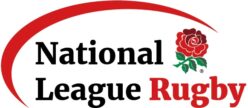History
The National League Rugby’s role is to represent the National Division Clubs, Leagues 1 and 2 (North, West and East), in total 56 clubs, in their dealings with the Rugby Football Union.
The origins lie in the formation of “the Gate-Taking Clubs” informal association in the early 1970’s. The original group consisted of eighteen clubs who were anxious to get some form of recognition with the game of Rugby Union. These clubs believed their strength in the game was not properly recognised.
From this came the establishment of the English Merit Tables for leading clubs with an order of merit being decided on a percentage of wins basis subject to a minimum number of games with clubs in the competition. These merit tables continued for a number of years and were eventually replaced by the Courage Leagues which were introduced in 1987/88.
With the introduction of the league system the Senior Clubs Association (SCA) was formed with a twelve member executive. This body was recognised by the RFU and eight members were on the Senior Clubs Sub-Committee of the RFU. However, there was no direct representation on the full committee of the RFU where county representation held sway.
It was not until 1995/96 that we obtained representation on the full committee. This came about, largely as a result of the recommendation of the influential Taylor Report (1994). This was set up to examine the way forward in the wake of the SCA’s involvement in the organisation of the National Leagues in liaison with the RFU. The report urged the RFU to recognise the National Clubs Association which would have a membership of those clubs playing in the top four leagues. This was done but the level of representation given to the NCA on the full committee fell short of the numbers required to give the NCA a substantial presence, with just two places and no representation on the then Executive Committee, although membership on advisory panels was increased.
With the introduction of the professional game in August 1995 which heralded the start of the long running dispute between the clubs (in the then Divisions 1 and 2) and the RFU and resulted in them resigning from the NCA on the formation of EPRUC which later became the Premiership clubs.
As the member clubs of the NCA were reduced the RFU encouraged the old Division 3 clubs to come to some agreement with the two 4th Divisions and to accept them as members of the NCA and so justify some direct representation at the RFU for the clubs in the three divisions. This was agreed in the 1996/97 season.
This continued for a number of years but in the intervening period the NCA was able to gain representatives on the RFU Finance and Competition committees.
In 2002 an agreement was entered into between the RFU and NCA which secured recognition of the NCA and no change in the league structure without the consent of the member clubs. For the present, NCA clubs provide both the widest geographical coverage and the main source of developing players for higher level rugby. The value of the role played by the NCA clubs is attested by representation on RFU bodies such as Council, Competitions and the Clubs Finance Committees.
Our member clubs play an important part in their respective communities, in addition to a first team virtually all clubs cater for rugby at a lower level with additional senior sides, Colts, Minis and Ladies teams. In addition the members have special relationships with local school and sporting bodies which brings about greater understanding of our game and the NCA position at the upper end of the rugby scene.
In July 2021, the RFU formally agreed to our change of name to National League Rugby which we believe more closely represents our role.
For the 2022/23 season, National League Rugby was restructured to include 56 teams. National One contained 14 teams with National Two split into three leagues of 14 clubs.
The changes which were implemented by the RFU were designed following feedback from clubs and players responding to their needs and changes in society. These changes were intended to reboot and re-energise community rugby, improving player retention and attracting new players to the adult men’s game.
